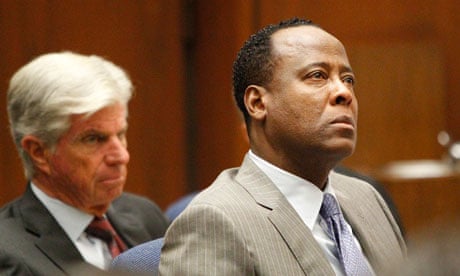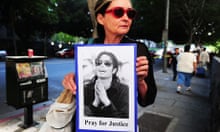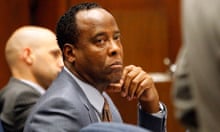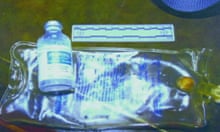A paramedic who tried to revive Michael Jackson has claimed that the singer's doctor failed to mention he had given the performer the powerful anaesthetic now known to have killed him.
Richard Senneff, delivering the most damning testimony yet to emerge from the trial of Dr Conrad Murray, revealed that the physician told him Jackson "was not taking any medication" and neglected to say he had administered the drug propofol to the singer. Prosecutors cite the omission as evidence that the cardiologist has repeatedly tried to conceal his actions during the desperate struggle to save Jackson. Murray, 58, is charged with involuntary manslaughter.
Senneff, the first paramedic to reach Jackson's bedroom on 25 June 2009, said he found the singer on the floor wearing a surgical cap. Jackson's skin was turning blue and "cool to the touch" while his eyes were "open and dry", suggesting he had been dead for some time, even though paramedics had arrived only five minutes after a 911 call stating that a 50-year-old male was suffering a cardiac arrest. Jackson appeared so underweight that Senneff deduced he might be suffering from a chronic illness.
Senneff told the court in Los Angeles that Murray was behaving in a frantic manner and that the doctor was evasive when he asked what underlying health condition Jackson had.
"He said, 'Nothing. He has nothing'," Senneff told jurors. "Simply, that did not add up to me." That, he added, was the start of several inconsistencies concerning Murray's responses that emerged during the 42 minutes while Los Angeles paramedics tried to revive Jackson.
Murray denies involuntary manslaughter. If convicted he could face up to four years in prison and lose his medical licence. Defence lawyers claim that Jackson gave himself an extra dose of propofol after his doctor left the room.





